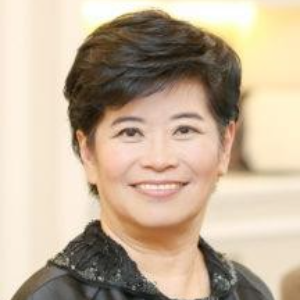Title : Bridging the gaps: The urgency for a pan-SARS-CoV-2 vaccine and the potential of T Cell immunity-promoting UB-612 vaccine that targets both spike and non-spike proteins
Abstract:
Catastrophic Covid-19: The COVID-19 catastrophe to humanity has been unparalleled in this last 100 years. Vaccine injuries, long COVID, long vax syndromes and persistent infection continue to erode human health and healthcare systems worldwide. The SARS- CoV-2 pandemic may be far from over due to continuing creation of heinous virus through gain-of-function genetic manipulation, and to undue massive vaccination across all age groups with suboptimal vaccines that are based on Spike only as a sole immunogen.
Chronic immune evasion: Revealed by the BA.2.86 and JN.1 variants, the SARS-CoV-2 virus continues to evolve with increasing number of mutations on both Spike and non- Spike proteins, which has perpetuated immune evasion caused by both B cell and T cell escapes. As non-Spike T cell immune responses provide the bulk of overall, ultimate anti-viral activity against SARS-CoV-2, the current Spike-only vaccines bear an intrinsic shortfall for promotion of a fuller T cell immunity due to the absence of non-Spike membrane (M) and nucleocapsid (N) protein as vaccine targets. To advert and mitigate a potential new catastrophic coronavirus pandemic posed by both natural and lab-created variants of the virus, it is crucial to prioritize the development and validation of an innovative pan-variant next-generation vaccine.
UB-612 pan-SARS-CoV-2 vaccine: We have initiated the design of UB-612 at the outset of CoVId-19 in the first quarter of 2020. UB-612 targets both “monomeric” Spike S1-RBD subunit protein and five “sequence-conserved, non-mutable” T-cell epitopes (Th/CTL) present on Spike S2, as well as non-Spike M and N proteins. In mice and macaque models, UB-612 can significantly reduce viral loads, lung pathology scores, and disease progression.1,2 UB-612 has been demonstrated in both the phase-1 and a large-scale phase-2 trials to be safe and well tolerated without concerns of severe adverse events, producing potent, broad, and long-lasting B cell and T cell immunity.3,4 Both memory B and T cell immunity appear to offer competitive edges over the counterparts of current Spike-only vaccines.
Protection against moderate-severe disease. During the Omicron BA.2-/BA.5- dominated outbreak, a Phase-2 trial-extended observational study was conducted to assess UB-612's protective effect against COVID-19 moderate-severe disease (hospitalization and ICU admission, H-ICU). The study also explored memory viral- neutralizing antibody titers and T-cell immunity underlying disease protection. Results indicated no cases of H-ICU beyond 14 months post-second dose or 10 months post- booster (third dose).5 The sustained absence of H-ICU cases (0% rate) over 12 months, could be attributed to the robust and enduring T-cell immunity generated by UB-612 vaccination. This positive outcome aligns with ongoing Phase-3 heterologous booster trials, demonstrating UB-612's ability to enhance anti-BA.5 seroconversion rates and viral-neutralizing titers across mRNA, adeno-vectored, and virus-inactivated vaccine platforms.
UB-612, a safe, effective heterologous booster substitute: The pan-variant UB-612 multitope vaccine emerges as a promising primer and booster substitute for individuals at risk of SARS-CoV-2 infection. By targeting Spike and non-Spike proteins, UB-612 vaccine-induced immunity could mirror that of natural infection. In contrast with the currently authorized vaccines relying solely on the Spike protein, a hybrid immunity involving natural infection plus UB-612 vaccination may potentially provide safe, robust, and long-lasting protection against reinfection of any severity.


